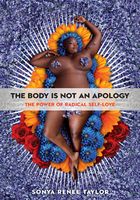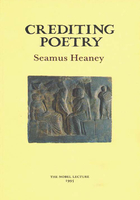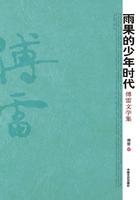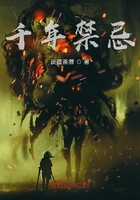Killing someone without splitting oneself from the feelings that the act engenders requires an effort of supreme consciousness that, quite frankly, is beyond most humans. Killing is what warriors do for society. Yet when they return home, society doesn't generally acknowledge that the act it asked them to do created a deep split in their psyches, or a psychological and spiritual weight most of them will stumble beneath the rest of their lives. Warriors must learn how to integrate the experience of killing, to put the pieces of their psyches back together again. For the most part, they have been left to do this on their own.
I'm occasionally asked, "What's it feel like to kill someone?" Sometimes I'm not asked what killing someone feels like; I'm told. "It must feel horrible to kill someone." And, infrequently, but harshly enough to sting, I've been judged. "How could you ever kill a fellow human?"
When people come up to me and say, "You must have felt horrible when you killed somebody," I have a very hard time giving the simplistic response they'd like to hear. When I was fighting-and by fighting I mean a situation where my life and the lives of those for whom I was responsible were at stake, a situation very different from launching a cruise missile-either I felt nothing at all or I felt exhilaration akin to scoring the winning touchdown.
I used to hesitate to say this, worried it would only further fuel the accusation that we Vietnam veterans were the sick baby killers we were being told we were. Maybe some veterans did feel horrible and sick every time they killed another man, just the way many people think they ought to. I'm also sure some of the people telling me they'd feel horrible and sick could very well feel that way if they ever had to do it. But they didn't have to. I did. And I didn't feel that way. And it makes me angry when people lay on me what I ought to have felt. More important, it obscures the truth.
What I feel now, forty years later, is sadness.
There was one particular NVA soldier whose desperate fearful eyes I still vividly recall, standing out like black pools in an exploding landscape of mud and dying vegetation. With my mind's eye I can still see him rising from his hole to throw a hand grenade at me. The wild desperation, the animal cornered, looking for a way out, and there was no way out. The panic. The lips pulled back showing his teeth. His friend crumpled over next to him, dead. He was a teenager, like my radio operator.
My platoon had just broken through a line of bunkers that circled a hill. The fighting was fierce. What now lay before us was a band about 30 meters wide of interconnected fighting holes and trenches that circled the top of the hill. Fire would suddenly come from one side or the other or directly above us. The hill was so steep we could see only pieces of the system at a time, the uphill positions always hidden from our sight.
Ohio, my radio operator, and I kept moving upward. Fire teams of three or four individuals would go after each position as it was discovered. Our turn was announced by Ohio, screaming, "Chi-comm!"[7] I looked directly uphill and saw the dark shape of the grenade tumbling in an arc against the silver-gray cloud cover, coming right toward us.
We scrambled up the hill to try to get underneath the arc, hoping the grenade would hit behind us and bounce a little farther down the steep hill before exploding. We buried our faces in the mud; pulled up our legs, trying to stuff ourselves into our flak jackets; and waited for the explosion. It went off below us without hurting us. We both pulled grenades out and tried to do the arc in reverse. Again we buried our heads against the clay as the two explosions pounded our eardrums. We looked up. Out of the smoke above us two more Chi-comms came tumbling through the air.
This exchange went on three times.
It seems incredible that it took me three times to figure out that one time the unseen grenade throwers above us were going to get lucky. It probably occurred to me because I was down to one grenade. Immediately after the explosion of the third Chi-comm, instead of throwing another grenade back, I took off around a small nose on the hillside. It immediately hid Ohio and me from each other's sight. I scrambled up the muddy hill, falling on my elbows and knees, churning with my legs. I remember seeing Ohio's grenade sailing over my head a little to my right and hoping he'd given it a good throw. With the grenade in midflight I caught a glimpse of the hole. A dead NVA soldier was crumpled forward in it, his upper body sprawled over the lip of the hole. I threw myself flat as Ohio's grenade exploded next to the hole. Shrapnel, rocks, and dirt whammed over the top of me.
I looked up as the stuff was still coming down, settled the stock of the rifle into my shoulder, and waited for the other NVA soldier to stand up to throw his next grenade. I had switched the selector on my M-16 to single shot instead of automatic. Don't ask me why. Somehow in my addled brain I decided to take this guy with one clean shot. The fighting hole was in plain view about 15 feet above me. There was the dead crumpled soldier. Apparently one of our grenades had connected. I didn't feel anything. Thinking of nothing else, I waited for that unseen grenade thrower to pop up.
Then he rose, grenade in hand. He was pulling the fuse. I could see blood running down his face from a head wound. He cocked his arm back to throw-and then he saw me looking at him across my rifle barrel. He stopped. He looked right at me. That's where the image of his eyes was burned into my brain forever, right over the sights of my M-16. I remember hoping he wouldn't throw the grenade. Maybe he'd throw it aside and raise his hands or something and I wouldn't have to shoot him. But his lips snarled back and he threw it right at me.
As the grenade left his hand I pulled the trigger, trying to act as if I were on the rifle range. And just like on the rifle range I "bucked my shot." I jerked the trigger instead of squeezing it and, anticipating the recoil with my shoulder, caused the tip of the rifle to lower just slightly as the shot went off. The bullet struck the lip of the hole in direct line with the kid's chest, spraying dirt right into his face and body.
My feeling? I felt embarrassed that I'd bucked my shot and it wasn't a clean hit. I felt chagrined that I had been foolish enough not to put my rifle on full automatic. I knew instantly that, had I not switched off automatic to play Deadeye Dick, the continuous recoil of automatic fire would have ridden the front of the barrel upward, putting several bullets in a straight line right up through the kid's chest and head.
I fired off two or three very hasty unaimed follow-up shots as I was rolling and moving because the grenade was now bouncing right over the top of me, about to explode. My first shot, right in line, almost certainly went into his body. So too could any of the three other wild shots. I'll never know for sure if any of them actually killed him, because Ohio came tearing around from the right side of the nose and, with his rifle on full automatic, sprayed the soldier with half a magazine, diving for the dirt himself as the Chi-comm went off just below me down the steep hill.
My feelings then? It felt pleasurable and satisfying to see Ohio ripping that kid apart on full automatic. I was alive! That certainly felt good. Another obstacle was out of the way of achieving our mission. That felt good too. But it also felt just plain pleasurable to blast him. Take that, you (choose a name that describes anything but a fellow human). In combat you are already over some edge. You are in a fierce state where there is a primitive and savage joy in doing in your enemy.
Jane Goodall once talked quite movingly about watching her little tribe of peaceful chimpanzees declare war on another tribe and savagely and ruthlessly exterminate it.[8] Up to that point in her studies of chimpanzees she had concluded that chimps were somehow above humans in this regard. But in a dispute over territory she watched what can only be described as atrocities-chimps being savagely dragged on the ground, clubbed, whirled by their limbs to smash their skulls-not in order to just drive them away from the territory but in order to exterminate them. I'm afraid I know how the winning chimpanzees felt. There is a very primal side to me. I suspect we all have this, but are so afraid of it that we prefer to deny its existence. This denial is more dangerous than acceptance because the "killer," that mad primitive chimpanzee part of us, is then not under ego control. It's why a good Baptist can get caught up in a lynching. It's why a peace advocate can kill a policeman with a car bomb.
My radioman and I both survived the explosion, although I was hit with small bits of shrapnel in the back of the legs. They felt like bee stings, hot and many. I was so pumped up with adrenaline they didn't even slow me down. When I looked up after the explosion, the Vietnamese kid was dead. My feeling? I felt relief. "Phew, no more grenades." I churned up the steep slope to take on the next position and quickly forgot even that feeling. I didn't even think about the incident until years later.
I now have all sorts of feelings. Suppose it was one of my sons, Peter or Alex, trapped, filled with fear as these huge American Marines, known to be ruthless, even crazy, came relentlessly from out of the jungle, swarming up the hill, killing his friends in their holes around him. Then two are just below him. Desperately, he tries to lob a grenade into the unseen dip in the hill where the two Marines disappeared. Two grenades come flying back from unseen hands, exploding around the hole. Again, he and his friend each toss a grenade. Again, two come back. The cycle repeats. One of the grenades kills his friend and stuns him, bloodying his face. Now he's totally alone. To leave the hole is to die. To stay in the hole is to die. Death is coming in a crummy hole hundreds of miles from his family, and he has never made love with a woman and he will never know the joys and trials of a family of his own. Then, there is the enemy, lying in plain view just below the hole, rifle ready, his brown eyes staring at him over the barrel, the eyes the only living color in a face that is a pallid mask of dried clay smeared with smoke smudges, terrible and gaunt with exhaustion and fighting.
"Throw the grenade! Try and save yourself, Peter!" But two rifles spit white-orange light. Peter is dead…my son.
My feeling now? Oh, the sadness. The sadness. And, oh, the grief of evil in the world to which I contributed.
What is different between then and now is quite simply empathy. I can take the time, and I have the motivation, to actually feel what I did to another human being who was in a great many ways just like my own son. Back then, I was operating under some sort of psychological mechanism that allowed me to think of that teenager as "the enemy." I killed him or Ohio did and we moved on. I doubt I could have killed him realizing he was like my own son. I'd have fallen apart. This very likely would have led to my own death or the deaths of those I was leading. But a split occurred then that now cries out to be healed.
My problem was that for years I was unaware of the need to heal that split, and there was no one, after I returned, to point this out to me. That kid's dark eyes would stare at me in my mind's eye at the oddest times. I'd be driving at night and his face would appear on the windscreen. I'd be talking at work and that face with its angry snarl would suddenly overwhelm me and I'd fight to stay with the person I was talking with. I'd never been able to tell anyone what was going on inside. So I forced these images back, away, for years. I began to reintegrate that split-off part of my experience only after I actually began to imagine that kid as a kid, my kid perhaps. Then, out came this overwhelming sadness-and healing. Integrating the feelings of sadness, rage, or all of the above with the action should be standard operating procedure for all soldiers who have killed face-to-face. It requires no sophisticated psychological training. Just form groups under a fellow squad or platoon member who has had a few days of group leadership training and encourage people to talk.
There are other feelings associated with killing. On this particular assault the battalion staff and another company being held in reserve had set up on a hill about a kilometer to our east. Normally upon seeing the first Marine break through the last defenses on an assault, something I experienced only three times, I had the same wonderful feeling-an explosion of relief that made me want to run forward with savage joy. We'd won! We would be safe. The organism, we, me, would be here tomorrow. But this time we were being watched, and when we finally broke into the open across the top of the hill we heard cheering coming from the battalion headquarters group and the company placed around them for security.
I turned murderously angry.
This seems odd, given that I was feeling savage joy myself just moments before. I think the anger came from the fact that we and not they had paid the price for this victory-and it was very steep. Human sacrifice had been turned into spectator sport. I now don't blame those who were cheering. They were unconsciously responding to a built-in psychology, no different from that of any spectator vicariously getting the "touchdown feeling." I probably would have done the same. But then I was enraged about it. I'd very nearly died. Some of my friends and my respected enemy had indeed died, while others would be maimed for life. It felt wrong that the guys on the other hill should be enjoying the same feeling they'd get watching a football game back home. I felt profaned. I felt something sacred had been stolen from me, my friends, and my enemy-our very real sacrifice. I felt had.
I'm aware that our bodies, the result of millions of years of evolution, do what they do. They have certain evolved responses. The choice before us is whether we are ever going to have the self-discipline and awareness necessary to guide these responses into productive channels or continue to allow them to overpower our sense of decency.
People who actually fight and win battles are in fact unlikely to cheer when they get the touchdown feeling, no matter how powerful it is. I never once heard anyone cheer who was actually involved in fighting. This is because the predominant feeling, when you win in battle, is numbed exhaustion.
One night Grandpa Axel and I pushed it just a little too far. We were catching fish, lots of them. And a storm was coming. Just one more drift…just one.
We laid out several hundred yards of gill net in the darkness. The water was moving in short harsh chops, the wind freshening. The net always seemed miles long to me, even in good weather, since I was that part of the two-man crew called the "boat puller." Grandpa Axel was the part called "the captain." A gill-net boat is about thirty foot long, open in the bow, with a cabin in the back and sunk in the middle of the cabin a four- or six-cylinder Marine or old tractor engine, depending upon the relative wealth of the fisherman. In a boat this size you don't actually pull the net into the boat. The net is far too heavy. You actually pull the boat along, sliding it under the net, to get the heavy water-laden net into the boat-hence the name boat puller.
We got the net laid out, tied the boat to one end of it, and sat drifting, waiting for the salmon. Punk. Punk. You could hear the satisfying sound of the cork line going under the water as a fast-moving salmon hit the net.
The rain started coming hard. Visibility closed. Punk. More money. Sockeye salmon were getting thirty-three cents a pound. Every punk was a buck or two. Punk. It was like a money machine. Punk. Punk.
Suddenly a large swell lifted the little boat, tipping it dangerously close to the gunwale because the bow was tied to the net. The wind came slashing down on us with a cold rain and the already dark night went totally black except for the dim white of the little battery-powered mooring light on top of the cabin. You could no longer hear any punks. You could hear only trouble.
Being only fourteen, I hadn't been through a lot of bad weather. Axel had. Even then, I noticed a grimness, a set of jaw, when he came limping forward to untie the bow from the net. The limp was a measure of that man. He'd been poling logs several winters earlier when the fish weren't running and slipped between two giant log rafts, crushing both legs. He swam to shore, then crawled nearly two miles to his car. He drove himself, using a stick shift with a clutch, to the hospital, where they amputated one leg just below the knee. Did I really learn to ignore pain in boot camp?
When Axel got worried, I got damned scared.
We started hauling in the net. The boat was corkscrewing like a bucking horse. We'd climb up a near-breaking swell, a curl of white water on top, and I'd almost be pulled overboard, trying desperately not to lose my grip on the net. Then we'd crash down, and I'd haul as fast as I could to keep the boat from going over the top of the net and tangling the prop. Axel was cursing in Swedish, untangling fish from the net, throwing them anywhere he could except out of the boat.
We both knew that the wind was driving us onto the rockbound lee shore only a few hundred yards beyond us, a shore we couldn't see or hear in that howling air. Rain and cold spray from the waves slashed almost horizontally into our faces. The boat would plunge downward and hit a swell with a shock, and water would come smashing over the gunwales, sloshing at our feet, making the boat wallow, inviting even more water in the next time.
Axel ran aft to get the pump going and try to maneuver the boat so I could haul in the net faster while he also tried to slow the boat's drift toward the shore. I was left alone, afraid I'd be pulled overboard if I hung on to the net and afraid to let go of the net because it was what was saving me from a wave that could take me overboard. Axel rejoined me, rushing between hauling in net and trying to steer using the auxiliary controls just beneath the bow. I hauled, net and salmon tangled together into a huge jumbled pile on the deck. We fought the foaming stallions for what seemed hours.
Finally, the last of the net came in over the side. We didn't know how close to shore we'd drifted. Axel scrambled to the back, gunned the engine, and headed on a compass bearing away from shore.
I collapsed on the wet net, chest heaving, staring upward into black nothing that sprayed water on my face. The boat bucked and heaved through the swells, but I was too exhausted to care. I just lay there on that wet seaweed-smelling net, flopping salmon dying around me, and stared into wet black nothingness. Totally exhausted. Feeling lucky to be alive.
Winning a battle feels like that. Only you don't get to flop on the net because you're fourteen and Axel is there to take care of you. You have to set up defenses immediately in case there's a counterattack. And it's not salmon that are dying around you.
Killing in war isn't always the morally clean "it was them or me" situation which we so often hear about and which I have described. The more technically sophisticated we get, in fact, the less common this situation will become, and the more problematic the morality. The more common situation in the future will be that of people quite distanced from the actual killing they are doing, their own lives not remotely in danger. I've never done this sort of killing, but I do have some perspective on it, having killed from the air, albeit where I could still see the damage I was doing, unlike the crew of a B-52 or a submarine.
Late in my tour, after being wounded two times, I'd been attached to division intelligence as an air observer. A five-man-Marine reconnaissance team had been discovered by an NVA unit in the mountains that border Laos just south of Khe Sanh. In the ensuing fight one member of the team had been badly wounded and now the team was trying desperately to escape but was severely hampered because of having to carry the wounded man. The Marines were a good 20 kilometers from the nearest friendly unit and out of artillery range. My pilot and I were already airborne in a little single-prop O1-Charlie spotter plane when division diverted us to answer the team's call for help.
When we made contact with the team, I directed the Marines toward a clearing on a hilltop I had spotted. From there we would try to get a chopper to lift them out. Packing their wounded teammate on slippery slopes, they made slow progress. They would have to turn to fire on their pursuers every so often, then scramble upward some more, only to turn and fight again. Because they were outside artillery range, all we could do was scramble some Marine A-4s[9] from Da Nang, well over 100 miles to our south, hoping that they'd arrive in time and the constant clouds and rain showers wouldn't make it impossible for the fast-moving jets to be effective. To fill in for the missing artillery and jets, in the meantime, the pilot would bring the O1 right over the team's head and I'd lean out of the little plane's window and shoot at the pursuing NVA with my M-16. I'd watch my tracers dropping earthward as if the ground were sucking them into itself, trying to place them into the winking bright points that I knew were NVA automatic rifles firing back at us. I felt good helping. I also felt curiously excited. What from the air looked like winking lights I, in fact, reacted to like winking lights. I focused on them as indicators of the origin of the fire, not as automatic weapons fire that was trying to kill me. It is like becoming so present focused that you are pure observer. You know from experience that to allow the mind to get involved with future, nonpresent issues like "this could kill me" will only make it more likely that you will be killed. (By this time I'd been in Vietnam nearly a year.) I was actually more apprehensive that we weren't going to be able to pull this one off and would lose the team. The time for debilitating fear is before and after the mission. There was no time now. I was trying to keep map coordinates going to the pilot, warning him when we'd get too close to cloud-hidden peaks that I was trying to locate through reading my map, talking to the Marines on the ground, trying to direct them around obstacles that they couldn't see and which would slow them down, talking on another frequency to the division recon staff in Dong Ha, who kept wanting to know what was going on, and trying to spot the pursuing NVA and shoot them with my M-16 from the shot-out windows of the airplane. Meanwhile the pilot was talking to the now scrambled Marine jets on another frequency; talking to the incoming evacuation bird on yet another frequency; trying to keep the plane spinning around only a couple of hundred feet off the ground to help maintain my M-16 fire directed at the pursuit, while at the same time trying to keep us from crashing into the numerous unseen peaks, guessed at by me, that surrounded the smaller hill the team was climbing; planning the approach paths of the attacking aircraft when they arrived; and doing the math to figure out how much time was left before we ran out of fuel-oh, and not stall the airplane. In combat your mind is jammed.
Eventually the team reached the summit and set up a hasty perimeter defense. Between us, we now concentrated on keeping the NVA at bay until help arrived.
The NVA had spread halfway around the perimeter and were closing in, peppering us and the small recon team with automatic weapons fire. Everyone in the air was worried; everyone on the ground was scared.
Two Marine A-4s arrived from Da Nang armed with "snake and nape."[10] Clouds obscured the hill, sometimes for minutes at a time, making it nearly impossible for the jet pilots to locate the target and making the helicopter rescue a real problem. We went in low. I remember everything going gray white as we entered a swirling low cloud and wondering if we'd hit the ground before we could see again. It seems remarkable to me now, but I simply trusted we would. That was the pilot's job, not mine. I leaned out of the window with my rifle ready to fire. Like a sudden curtain going up on bright daylight the green-gray ground rushed up at us. We were coming in parallel to the front of the team's defense on the same heading we'd given to the jets and my pilot fired one of our phosphorous smoke rockets into the enemy that ringed the team, marking the target for the much faster and higher-flying A-4s. He twisted the plane over to port and downhill trying to get it safely back into some altitude. I remember seeing pieces of burning phosphorous flying through the air leaving brilliant white smoky arcs from where the rocket had exploded among the enemy soldiers. I didn't think about the burning phosphorous on their skin.
Almost immediately, braving the same intermittent clouds, the two A-4s, guided by my pilot over the radio and the brilliant white smoke of our burning phosphorous, were on top of the now running NVA soldiers. They delivered their snake on the first pass and blasted out large open patches in the jungle just below the team. I could see the stunning waves of concussion shaking trees in concentric circles, as if a huge rock had been thrown into a dark green pond. We then directed the two jets back in with their napalm and lit everything on fire.
In those smoking clearings I could see the charred burning bodies of the NVA who'd died or were still dying. Some were crawling for the cover of the unblasted jungle, trailing smoke from their clothing and skin.
My feeling? I had been elated! I shouted to the team, "We got Crispy Critters all over the hill!" Crispy Critters was a popular breakfast cereal at the time.
If, back then, I had been who I am today I would have felt differently. There would have been no elation. But back then I was just like the battalion staff that had cheered our victory on the hill. I identified with the reconnaissance team, whose lives were very much in doubt. Psychologically I had become identified with the threatened group, and the advancing enemy was no longer human. I didn't kill people, sons, brothers, fathers. I killed "Crispy Critters." It could have been krauts, nips, huns, boche, gooks, infidels, towel heads, imperialist pigs, yankee pigs, male chauvinist pigs…the list is as varied as human experience. This dissociation of one's enemy from humanity is a kind of pseudospeciation. You make a false species out of the other human and therefore make it easier to kill him. The touchdown feeling combined with dissociating the enemy was in full glorious effect.
We directed in one more pass of snake and nape, but this one was hardly necessary. The NVA were now content to fire at the aircraft from the cover of the surrounding jungle rather than go after the team. The first flight returned to base. We got a second flight of A-4s up and kept them on station until a very brave chopper pilot from MAG-29 got into the zone.[11] Everyone on our side made it out safely. We were delighted.
I'm still delighted. Do I delight over this out of some sort of depravity? Some sort of warping in my childhood? I don't know. I may just be built this way. I can feel that old excitement as I write this. How similar I am to others I also don't know. Few will ever have to run the test. I suspect I am not very different. All I know for sure is that, at the time, I didn't feel sickened or horrible about it. I was doing a good job of saving some fellow Marines.
And how do I feel now? I can still indulge in the excitement-and it is indulgence. It sells billions of dollars worth of entertainment. But I can also bring some consciousness to this past action of mine, and when I do, I find myself amazed at the many other feelings lying hidden there that this excitement masks and helps us deny.
Primarily it's a matter of identity and age. I am now in relation to both the team and the enemy. I now think of what was "the enemy" as human beings, so I find it hard to crow about burning them to death. I'm also very aware of the genuine cost being paid by those NVA soldiers and that reconnaissance team for me to get those feelings of excitement and pleasure.
I'd still do the same thing, only I would be aware of a horrible dilemma. I would be much more reluctant to use napalm now, knowing I could get the job done a lot more humanely with bombs. But scrambled aircraft arrive on station loaded with what they're loaded with. Once I had decided to be in that situation, I couldn't then decide that the team should sacrifice itself for my misgivings about using napalm. I wouldn't let the team down. I would have chosen to be on their side, totally. I don't believe in pulling punches during a fight to the death. But there would certainly be no excited calls over the radio, no Crispy Critters language. I'd hope that I'd remember to respect my enemy's pain and agony.
Could I empathize like this while up in the airplane? Unlikely. Empathy comes with years, and most fighters are very young. This is why politicians and generals need to see these kids as their weapons and use them with care and consciousness. Ideally, I would hope that, in spite of the adrenaline, I'd at least stay conscious of a terrible sadness while I burned these people. But burn them I would.
The ideal response to killing in war should be one similar to a mercy killing, sadness mingled with respect. A few years ago I came across a sick seagull on the beach. Dogs were harrying it. Both its wings were broken. Still, it defended itself, bravely slashing with its beak to try to keep the barking dogs away. People kept walking by, not wanting to look at it. I chased the dogs off and wrung the bird's neck. I felt no elation, only regret for the events that led up to the situation, and a sort of wistful "Why me, Lord?" as I did what no one else wanted to do.
When my German shepherd, Sancho, grew old, he got overly protective of the front porch. My kids would bring in their little friends, who would occasionally trip on him. Sancho started to snap and snarl, something he'd never done with kids when he was younger. (I can relate.) One day he snapped and snarled at a three-year-old who was trying to get out of the car. The mother freaked out, grabbed her child, and slammed the car door. Later she phoned to tell us that she wasn't coming over anymore. It's hard to blame her. Sancho weighed 134 pounds. We tried everything we could think of. Took him around kids on a leash. Talked to behavior experts. Moved his food away from the front door. Had him checked out for hearing problems, eye problems. I lay down next to him in the little mudroom where he slept one night and talked to him, tears in my eyes, asking him to change. He didn't change. One day Alex, my youngest son, then three, tripped and fell on him. He snapped at Alex, biting him on the cheek.
I took Sancho to the vet and lay next to him with my arms around him as she injected him with sodium pentothal. I made a tombstone out of concrete and we buried Sancho down by the trees at the edge of the field.
As I said, it is unlikely young soldiers will feel about killing in war the way I felt, decades older, on a beach with a seagull or at the vet's with my dog. It just goes against the nature and level of development of the mostly young people who will do our nation's killing. Still, I think we fall far short of our potential. We don't even strive for it with the youngest, and we can definitely instill a great deal of this sensibility in the older professional noncommissioned and commissioned officers. Even then it is difficult because the oldest people who are likely to be directly involved with killing the enemy, or directly supervising those who kill, are still usually in their twenties or early thirties. My company commander in Vietnam was twenty-three.
In war, we have to live with heavy contradictions. The degree to which we can be aware of and contain these contradictions is a measure of our individual maturity. You can't be a warrior and not be deeply involved with suffering and responsibility. You're causing a lot of it. You ought to know why you're doing it. Warriors must touch their souls because their job involves killing people. Warriors deal with eternity.
My first encounter with knowing this consciously came during an operation where the company was dropped by itself into a barely known area of thick jungled mountains just below the extreme western part of the DMZ.[12] Three days into the op we'd stumbled into an NVA outpost. The NVA triggered a command-detonated mine that had been lashed to a tree at waist height, killing our point man. He always kept a picture of his girlfriend, who was a year younger than he and still in high school, in his breast pocket for good luck. The piece of shrapnel that stopped his heart went right through her face. Somehow, when I pulled the picture from his pocket and looked at it, it stuck with me, this beautiful, young face obliterated by the same random piece of steel that had stopped her lover's heart.
A series of firefights ensued while the NVA tried to keep us at bay. We kept probing forward in the jungle to get at what they were protecting. Normally, with nothing at stake, the NVA would have pulled back to escape the inevitable artillery fire we would call in. Two hours of off-and-on firefights and several artillery missions later, we came to the edge of a very steep drop-off above a small beautiful valley. We followed a steep zigzag path to the bottom, where we found underground bunkers containing tons of ammunition, food, and other supplies and half a dozen large thatched-roofed open-air sheds that served as meeting places, mess halls, and so on. There was a pretty little stream running right through the center of the camp. There were smaller bunkers with the sleeping pads and personal items still lying around and hastily abandoned cook sites with half-prepared food. In the bunker I occupied were two bowls of half-eaten rice and a still-smoking bamboo water pipe neatly placed on the floor, as if the occupants had stepped outside for a pee or something. The whole thing gave me the impression of a macabre bamboo Brigadoon just waiting for the hundred-year return.
My lessons in eternity weren't over yet. That night, all was completely hidden in a creeping fog that you could feel but not see. We had our own ambush teams out on all the approaches, waiting in the cold darkness. I'd just relieved Doc Southern, one of our two platoon corpsmen, for radio watch. He hung around, obviously unable to sleep in that spooky atmosphere, wanting to talk, which suited me just fine. Our other corpsman, Brailier, was asleep in the captured bunker next to us. Brailier was a quiet kid, very near the end of his tour. Even though he was only twenty, I always sensed something very deep in him, deep and troubling perhaps. In the course of our quiet conversation that night I asked Southern about Brailier. Was he always this way?
Doc Southern looked out the opening of the bunker and started to talk, very quietly, his soft voice mixing with the fog that hung just outside the black hole.
"I was just new to the platoon," he said, staring into the past. "We was out northwest of Con Thien. We'd been in the shit off and on for a couple of days. There was this point-to-point firefight. No one got hurt but this one gook. He was a mess. M-79 shotgun round right in the stomach. You could hardly tell what pieces were what. The spine was pretty much gone, so he'd been a basket case for sure if he did live. But the problem was he was still alive. And we didn't know if he'd be dead in twenty minutes, or two weeks, or two years.
"The louie[13] kept asking Brailier, 'Is he going to die? Is he going to die?' We was all anxious to get the fuck out of there. Shit was still happening and, like I said, we was in the middle of fucking nowhere and the company had to move on. It meant we'd have to leave a squad back to protect the LZ if we was going to medevac the gook. And believe me, no one wanted to be that squad, not no one, not then."
I could well understand the lieutenant's need to know if the NVA soldier was going to die anyway. If he was alive, then ethics said medevac him, but that risked losing the chopper crew and the squad protecting the zone, and for what? Death in a day or two anyway? A life as a basket case? It's very hard to say when one becomes morally and legally responsible for a prisoner's life, given that such decisions often involve risking the lives of your own people. Leaving him there to die, however, could mean days of agony for the wounded man, and that was really not much different from murder. But to murder a prisoner outright was certainly wrong and could send the lieutenant to jail for a long time.
Doc Southern was going on, still looking into the blackness. "I remember looking up at Brailier and the louie. I was holding in pieces of this gook's pancreas and stomach, trying to get him ready for the chopper if that's what they decided to do, and trying to ease the pain. He was in a real bad way. You get to know when it really hurts, and this guy hurt, sir.
"There was this moment. You know. This moment. Then Brailier said, 'He's going to die.'
"That's all the louie needed and he started rounding up the squads and moving them out and I packed up my gear and started off after them." He stopped talking for a moment.
"Only Brailier went off by himself for a few minutes. I don't know if he was praying or taking a piss, but he came back and shot the man right through the head."
We didn't say anything for a long time. I never asked Brailier about it.
So ask the now twenty-year-old combat veteran at the gas station how he felt about killing someone. His probable angry answer, if he's honest: "Not a fucking thing." Ask him when he's sixty, and if he's not too drunk to answer, it might come out very differently, but only by luck of circumstance-who was there to help him with the feelings during those four long decades after he came home from war. It is critical for young people who return from combat that someone is there to help them, before they turn to drugs, alcohol, and suicide. We cannot expect normal eighteen-year-olds to kill someone and contain it in a healthy way. They must be helped to sort out what will be healthy grief about taking a life because it is part of the sorrow of war. The drugs, alcohol, and suicides are ways of avoiding guilt and fear of grief. Grief itself is a healthy response.














